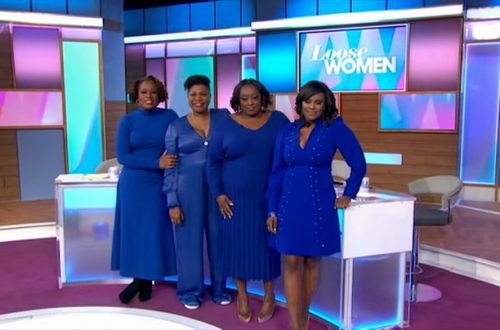Following former Channel 4 chief executive’s claim that the channel now has “an obsession with adolescent transgression and sex”, Magnus Linklater argues in the Times that this isn’t necessarily a bad thing, because “the goal posts have moved since then”:
Pornography is available on tap from the internet. There is live sex, or a version of it, on Big Brother. Intimacies of a previously unmentionable nature are talked about by chat show presenters such as Jonathan Ross and Graham Norton with a chirpy openness that, to a previous generation, would have been unthinkable…Bombarded with the subject, we are more knowing – though not necessarily more knowledgeable – about sex than any previous generation has been.
Why, then, should it not be dealt with head-on, so to speak, on television? That is what Channel 4 now claims to do. It argues that it takes sex seriously, devoting late-night programmes to subjects such as lesbianism, pornography, paedophilia, fetishism, or simply the nature of sexuality…The programmes have what the regulators call “context” – that is the programmes set out to extract sex from the fantasy of internet or magazine pornography, and place it firmly in the context of real life, which may involve suffering as well as pleasure. If, in the course of that, we are shocked, repelled, or even excited, I doubt if that constitutes a legitimate reason for excluding it from the schedules.
These are the sort of programmes that Guardian TV critic Charlie Brooker once described as “mastumentaries”, where the broadcaster has to provide enough legitimate information to please the regulators, and enough filth to please the audience. Linklater suggest we should demand more of this kind of programming, “in the fond hope that it gets a lot better. Good sex, like good television, improves with practice. As for Sir Jeremy – well, if he doesn’t want to watch it, then he doesn’t have to”.
The Guardian’s Zoe Williams on the other hand makes the point that although programming such as Designer Vaginas, The World’s Biggest Penis, and Wank Week generate lots of publicity for the channel, this isn’t matched by these shows’ viewing figures: “Of the most consistently popular shows on the channel, the only one that doesn’t have sex written out of it by definition is It’s Me or the Dog. Nobody will ever shag on a home makeover show, or on Supernanny, or on Wife Swap – that’s the funniest thing about it, that it is a groundbreaking interrogation of conjugal conditions, yet it has less sex in it than a Hovis advert. And the one thing on earth less sexual than Wife Swap is, by delicious coincidence, also the greatest contributing factor to a summer of the highest ratings in the channel’s history: the cricket. None of this answers the question of whether or not there’s too much sex, but it does make you wonder who they’re putting the sex on for, if not the viewers”.
Below is the Broadcasters’ Audience Research Board‘s list of the 30 most popular programmes on Channel 4 for the week ending 5th November:

Designer Vaginas, The World’s Biggest Penis and Wank Week might be edgy, innovative, daring, controversial, challenging and all the rest of it, but they’re not the water-cooler television C4 presumably wants them to be, because nobody watches them.


